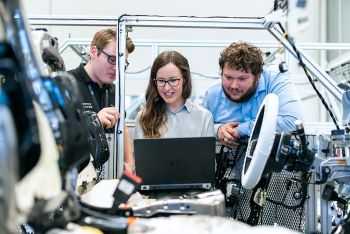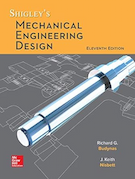The Benefits of Interdisciplinary Engineering Teams
Engineering is a diverse field that encompasses a wide range of specialties, from mechanical engineering to electrical engineering, and more. Each discipline focuses on a specific area of expertise and provides a unique perspective on the problems that need to be solved. However, the best solutions often come from the intersection of different disciplines, and this is where interdisciplinary engineering teams come in. In this article, we will explore the benefits of interdisciplinary engineering teams and how continuing education can help these teams work together more effectively.

Brings a Fresh Perspective
One of the most significant benefits of interdisciplinary engineering teams is that they bring a fresh perspective to problem-solving. When engineers from different disciplines come together, they bring their diverse experiences and perspectives to the table, which can lead to new and innovative solutions. By combining the skills and knowledge of different engineers, interdisciplinary teams can approach problems from different angles, providing a well-rounded solution that may not have been possible with a single-discipline team.
Improves Collaboration and Communication
Interdisciplinary engineering teams require collaboration and communication between engineers from different backgrounds, which can be a challenge. However, the benefits of working together in a team far outweigh the challenges. When engineers work together on a project, they learn to appreciate each other's strengths and weaknesses and understand how their disciplines complement each other. This understanding can lead to improved collaboration and communication, resulting in better solutions to complex problems.
Increases Knowledge and Understanding
Working with engineers from different disciplines can also increase an engineer's knowledge and understanding of other engineering fields. By working with engineers from different backgrounds, engineers can learn about new technologies, techniques, and methodologies, expanding their own skills and knowledge. This increased understanding can lead to the development of new technologies and innovative solutions that may not have been possible without the interdisciplinary team.
Addresses Complex Problems
Interdisciplinary engineering teams are well-suited to addressing complex problems that require the expertise of multiple disciplines. For example, a project that involves the development of a new transportation system may require the expertise of mechanical, electrical, and civil engineers. The interdisciplinary team can work together to ensure that all aspects of the project are considered and addressed, leading to a more comprehensive and effective solution.
Enhances Career Development
Working with interdisciplinary teams can also enhance an engineer's career development. By working with engineers from different backgrounds, engineers can learn new skills, gain new insights, and expand their professional network. This experience can help engineers grow their careers and position themselves for new and exciting opportunities.
Continuing Education and Interdisciplinary Teams
Continuing education is crucial for engineers who want to stay ahead of the curve and remain competitive in the job market. For interdisciplinary engineering teams, continuing education can play an essential role in improving collaboration and communication, as well as increasing knowledge and understanding. When engineers from different disciplines take courses together, they can learn about new technologies, techniques, and methodologies, expanding their skills and knowledge. This shared experience can lead to a better understanding of each other's disciplines, resulting in improved collaboration and communication.
For example, an interdisciplinary team of mechanical, electrical, and civil engineers can take a course on sustainable energy systems. This course can provide an overview of the latest developments in sustainable energy, including renewable energy technologies, energy storage systems, and more. The interdisciplinary team can learn about these developments and how they can be applied to their project, leading to a more comprehensive and effective solution.
PDH Classroom offers a suite of online continuing education courses tailored to engineers. These courses can be used to fulfill PDH credit requirements for maintaining your PE license, or just as a part of staying ahead in your field.
The benefits of interdisciplinary engineering teams are clear. When engineers from different disciplines come together, they bring a diversity of perspectives, experiences, and expertise to the table. This allows them to tackle complex problems with a more holistic approach and find innovative solutions that might not have been possible with a single-discipline team. Additionally, continuing education plays a crucial role in ensuring that interdisciplinary teams have the necessary knowledge and skills to work together effectively. By staying current in their fields and learning about the latest technologies and techniques, engineers are better equipped to collaborate with their colleagues and tackle complex problems together. Ultimately, the success of interdisciplinary engineering teams depends on the investment of time and resources into continuing education for all members. By doing so, organizations and companies can maximize the benefits of interdisciplinary teamwork and stay ahead of the competition in the rapidly changing landscape of engineering.




